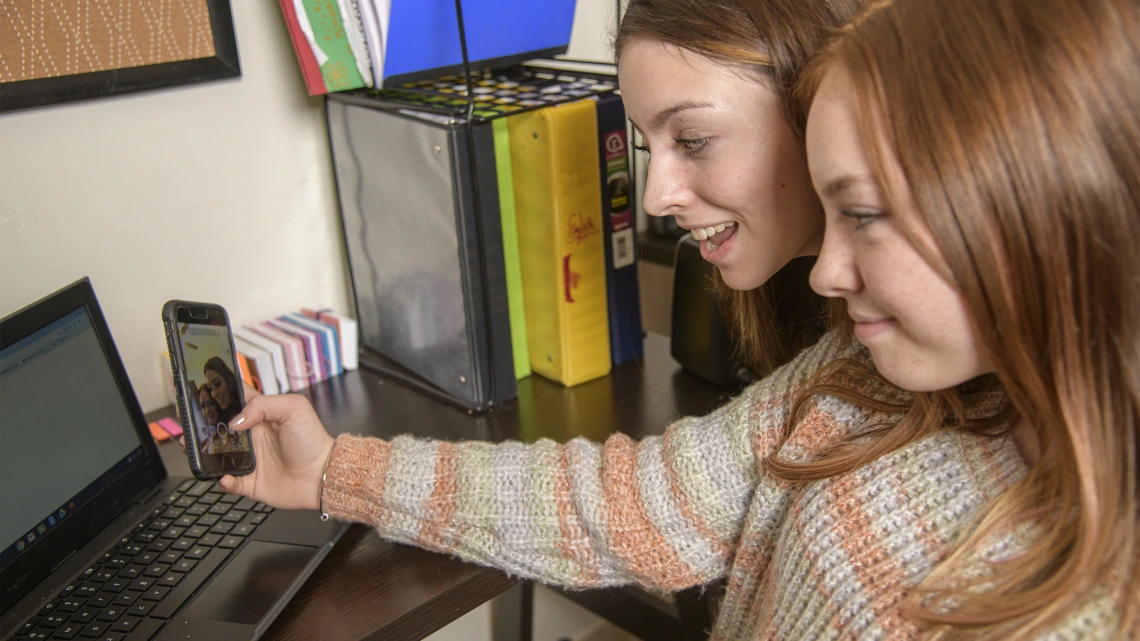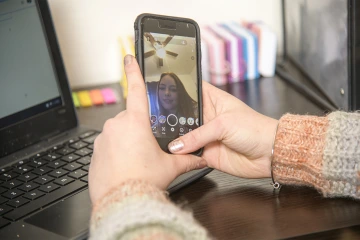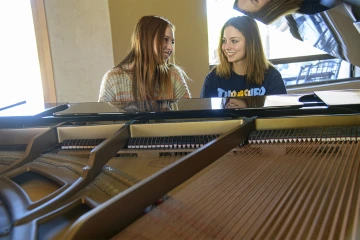Health Sciences COVID-19 Toolkit Empowers Isolated Teens
Seeing a gap in resources for teens, Health Sciences researchers created a video for teens addressing mental health during times of isolation.

Even when they’re confined indoors with other family members, teens can still nurture their social networks with technologies, such as telephone, text and video chat.
With schools and summer programs shuttered, sports suspended for the foreseeable future and teenagers sequestered in their homes away from friends, many teens are feeling lonely, bored and frustrated. In response, the Mel and Enid Zuckerman College of Public Health created a video to guide teens through the mental health challenges of this protracted stay-at-home period.

For many teens, it might not seem natural to schedule social time with friends, says Welty, but it can help restore a sense of normalcy during this public health crisis.
“We noticed there weren’t many resources out there geared for teens,” said Cody Welty, public health graduate student in health behavior and health promotion. “We wanted to keep it short and simple and give a few actionable items. The goal is to give teens resources and some activities to help improve their mental health.”
Tackling isolation
Titled “How Do I Get Through This? A Teen Guide to Surviving COVID-19 at Home,” the two-and-a-half minute video features practical advice from Welty, whose research focuses on adolescent suicide prevention.
“This is an audience I really care about, and one that gets left out a lot because it’s hard to talk to teenagers or connect to them,” Welty said.
Welty looks straight into the camera, reminding his audience that things like hand hygiene and social distancing are important — but so is mental health. He reviews several coping strategies that teens can use during this time, prompting them to stay on a regular sleep schedule, carve out time to talk to friends, learn new things, and take good care of their bodies and minds.
“Being able to make changes on a broad level is why I got into public health in the first place.”Cody Welty, College of Public Health graduate student
He even infuses the video with humor, as when he makes self-deprecating remarks about his own ability to keep a succulent alive, or talks about how much better one feels in jeans rather than in stretchy pants.
“One day of staying at home isn’t that bad, but once you add on more and more days, it can be more challenging,” Welty said. “You go from seeing your friends every day and socializing and having a set structure, to staying at home trying to make classes work, sleeping worse, having loneliness, or maybe having mental health concerns come up for the first time.”
Everything Welty recommends is within most people’s reach, especially if they have access to the technology that facilitates connection to friends, family and other support networks.

Picking up a new hobby or polishing up an older skill can help teens build self-reliance, a sense of autonomy that equips them to face new challenges. Here, two sisters play piano.
“I’m glad that a lot of the world is more online right now and there are more resources for people to connect and learn new things,” Welty said. “Being able to connect through texting, voice chat or video chat has to help.”
Learning autonomy
Welty recommends teens practice self-reliance by learning how to execute a task, such as cooking a meal or building furniture. In addition to drawing from family cookbooks or expertise from a skilled household member, they can go to YouTube and other online resources to teach themselves new things.
“If you’re spending a lot of time by yourself, picking up a new hobby can build self-reliance,” Welty said.
Research shows that feelings of autonomy, or self-reliance, can guard against mental health issues like suicidal ideation. Welty says that, in Pima County, overall suicide deaths and calls have gone up since the beginning of the pandemic, though it’s unknown how this change has hit teens specifically. He wants struggling teens to know there are places they can turn for help.
“I’m hoping they realize they aren’t the only ones going through something difficult right now, and there are resources that can help them get through this,” Welty said. “There are things you can do to help yourself, and things that other people are doing to help you. They’re not alone during this difficult time.”

